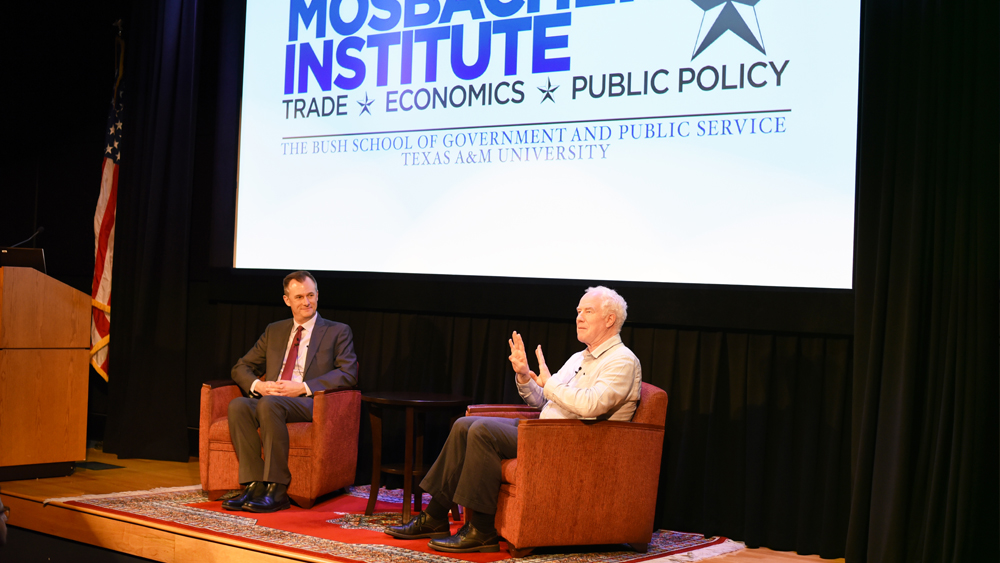
On February 19, 2020, Dr. Michael Woolcock, Lead Social Scientist at the World Bank’s Development Research Group, gave a talk titled “Now for the Hard Part: Alternative Paths to Building State Capability for Policy Implementation.” The event was hosted by the Mosbacher Institute for Trade, Economics, and Public Policy at the Bush School of Government and Public Service at Texas A&M University.
In his talk, Woolcock argued for the need to increase state capability for policy implementation when pursuing development for two critical reasons. First, development and state building is a complex issue that requires tailored solutions over one-size fits all approaches. Second, the art of state building and development is constantly becoming more difficult as goals shift toward sustainable development and populations grow.
Because of this complexity, implementation of development policy is moving at a glacial pace throughout the world. Using World Bank data, Woolcock calculates that only thirteen developing economies are on a path to strong capability by the end of the 21st century. Some nations, such as Kazakhstan and Ukraine, will take thousands of years to develop if there is no domestic shift in policy. In others, such as India, systemic issues hinder the ability to implement sustainable development policy in various sectors such as education.
Woolcock noted that many approaches to state building measure success based on appearance, not actual achievement. States can build fancy schools and courthouses without properly addressing the systemic policy issues plaguing their education and legal institutions. Similarly, a high rate of school enrollment does not necessarily mean that the students are actually learning. Expensive and ineffective reforms put a high burden on states that they can ill afford and delegitimize the idea of the reforms.
Woolcock concluded his talk by offering a new approach called problem-driven iterative adaption (PIDA). This approach seeks to address sub-national variation in development and provide solutions to building state capability by focusing on expanding local successes. Applying this approach to state building can result in more effective, tailored solutions to development. The World Bank is already starting to apply the PIDA approach to various development programs.
Woolcock’s talk was based on his coauthored book titled Building State Capability: Evidence, Analysis, Action.

